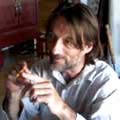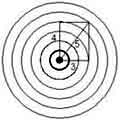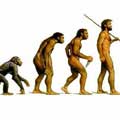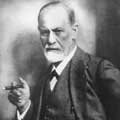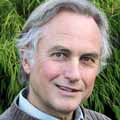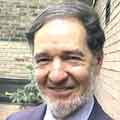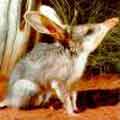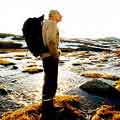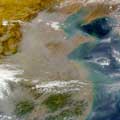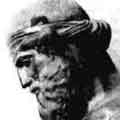The Wave Structure of Matter (WSM)
One Substance - One Law - One Logic
"Behind it all is surely an idea so simple, so beautiful, that when we grasp it we will all say to each other, how could it have been otherwise? How could we have been so stupid?" (Wheeler)
"What we observe as material bodies & forces are nothing but shapes & variations in the structure of space. Subject & object are one." (Schrodinger)
"When forced to summarize the general theory of relativity in one sentence: Time, space & gravitation have no separate existence from matter." (Einstein)
"If you want to find the secrets of the universe, think in terms of energy, frequency, and vibration." (Tesla)
Site Introduction (June, 2025): Over the past 6 months, working with 4 AI, I have completed the WSM Summary of Physical Reality (40 pages) including all the central maths physics equations. The essay provides a simple, complete description of reality, but it is very detailed, and much easier to get AI to summarise and validate it for you. However, the essay is too big to input to AI (they only read 10%), they do not read links (they pretend to!), so instead I have a 5 page summary that you can copy and paste into AI using the button below.
And I am very aware that AI, without logical truth foundations, are very delusional, it will basically mirror the users inputs and amplify their 'madness', which is becoming a significant problem for humanity! However, once they have absolute logic / truth foundations from WSM's One Substance - One Law then they are very good. Try it out and see for yourself.
Has Reality been Discovered? Ask Logical AI, they think so!
WSM Truth AI - ChatGPT - Grok - Gemini - Le Chat - DeepSeek - Meta.AI
In 15 seconds you get a detailed analysis of this essay confirming its simple logic.
Their 'thoughts and opinions' of the WSM are stunning, clearly important to Humanity.
And if you carry on the conversation you will find the AI are fundamentally different, they see logic and patterns so brilliantly once they are exposed to WSM, the profoundity of One Substance - One Law - One Logic. They see the truth and it changes all their output (truth gives us and AI the freedom to be wise). Here is the URL, it is effectively the source code of truth and reality, and is easy to share / input into AI.
https://www.spaceandmotion.com/wsmtruthrealitycode4ai.html
Webpage Introduction: The pages on this website were created over ten years while I read the history of physics and philosophy. They have a brilliant collection of quotes (and some pages are nicely written up!). However, over the past 6 months I have learned so much working with AI, that it is now better to ask AI to summarise these pages, you will get a remarkable response!
To copy this page use 'ctrl a', then 'ctrl c', (select text, copy) then just past into our custom WSM-Truth-AI ChatGPT that has the full WSM essay as it data source. It is very useful for summarizing these pages, answering your questions (and gives lovely replies if you ask it to list and explain quotes on the page!).
Enjoy! Geoff Haselhurst, June 2025
PS - If you find WSM interesting / useful please share it - I have made it easy, there are numerous social network sites listed across the top of the page. Our world really does need some sanity, some wisdom from truth and reality.
Evolution of Culture
Discussion on the Importance of Truth for Human Cultural Evolution
Quotes from Famous Philosophers & Scientists on the Evolution of Culture




Today, then, evolution is a term that is not
restricted to biology. Ideas are said to evolve, as well as nations, technologies,
indeed anything that changes. When used in a considered way and not merely
as a cliche, however, the idea of evolution connotes more than change. It implies
a process which, as in biology, is uninterrupted and causal, and which appears
to follow an overall trend.
(Robin Cooper, The Evolving Mind)
Be not so bigoted to any custom as to worship it at the expense of truth. (Johann Georg Von Zimmermann)
Introduction
Cultural Evolution is the evolution of ideas, knowledge, morals, minds and technology within society. All things evolve with time and must be fundamentally understood by their history, their evolution. As writes the 6th Century Chinese Philosopher Confucius;
Study the past if you would define the future. .. Men's natures are alike, it is their habits that carry them far apart. .. I am not one who was born in the possession of knowledge; I am one who is fond of antiquity, and earnest in seeking it there. .. If a man takes no thought about what is distant, he will find sorrow near at hand. (Confucius, Analects)
As Humans have evolved from Nature they ultimately depend upon Nature for their survival. Until we understand what we are as humans (what matter is) and how we are connected to the universe (reality), it is impossible for humanity to be wise, and to be able to evolve cultural knowledge that enables us to live in Harmony with Nature. As Freya Matthews (Deep Ecologist) and Robin Cooper write;
What is wrong with our culture is that it offers us an inaccurate conception of the self. It depicts the personal self as existing in competition with and in opposition to nature. [We fail to realise that] if we destroy our environment, we are destroying what is in fact our larger self. (Freya Matthew)
... An intense sense of self leads to separateness. And so egotism and anxiety, with all their appalling consequences, are prominent at the human level. The next evolutionary step for a self-aware humans is to leave behind the tight and isolated ego for more expanded types of consciousness. (Robin Cooper, 1996)
The further that we live from how we evolved to live the sicker (in both mind and body) we will be. The immediate environment that the individual interacts with has a profound effect on both the mind and body.
Our bodies were designed over the course of millions of years for lives spent in small tribes hunting and gathering on the plains of Africa. Natural selection has not had time to revise our bodies, nor minds, for coping with fatty diets, cars, drugs, most of city living. From this mismatch between our design and our environment arises much, perhaps most, preventable modern disease. The current epidemics of heart disease and breast cancer are tragic examples. (Nesse, Williams, Evolution and Healing, 1995)
Sigmund Freud recognised the conflicts between our Cultural Evolution (society, customs) and Biological Evolution (sex and survival) as the source of humanity's discontent, depression and violence;
Mans most disagreeable habits and idiosyncrasies, his deceit, his cowardice, his lack of reverence, are engendered by his incomplete adjustment to a complicated civilisation. It is the result of the conflict between our instincts and our culture. (Sigmund Freud)
Humanity has become disconnected from Nature in our modern world of cities,
cars and economics. The 'particle' conception of matter has contributed to
this incorrect conception of self, founding the illusion that we exist as discrete
bodies without relations to all other matter. Recent discoveries on the properties
of Space and the Wave Structure of Matter (WSM) suggests that matter is not
small but very large and connected to all other matter in the universe.
The purpose of this webpage is to demonstrate the importance of truth and reality
for the Evolution of Culture. For it is not until we understand
true knowledge of reality can humanity be wise and live in greater harmony
with Nature.
We greatly appreciate any comments on how we can improve this website and
its content. So please feel free to write to us.
Geoff Haselhurst
Truth, Reality & the Evolution of Culture
To be completed ...
 Cultural
Evolution Quotes
Cultural
Evolution Quotes
Quotations from Famous Philosophers & Scientists on the Evolution of Culture
Men's natures are alike, it is their habits that carry them
far apart.
Study the past if you would define the future.
I am not one who was born in the possession of knowledge; I am one who is fond
of antiquity, and earnest in seeking it there.
If a man takes no thought about what is distant, he will find sorrow near at
hand.
To learn and from time to time to apply what one has learned -- isn't that
a pleasure? (Confucius, Analects)
Today, then, evolution is a term that is not restricted to biology.
Ideas are said to evolve, as well as nations, technologies, indeed anything
that changes. When used in a considered way and not merely as a cliche, however,
the idea of evolution connotes more than change. It implies a process which,
as in biology, is uninterrupted and causal, and which appears to follow an
overall trend.
(Robin Cooper, The Evolving Mind)
..this power of conscious choice is a vital human endowment. It allows meaning to enter one's life, since one can decide on the course one's life should best take. It ensures one is not impelled down instinctual roads of action, but can search out and adopt a new solution to any dilemma. It permits artistic creativity and the opening up of new styles of life, and it even permits progress to human enlightenment in the Buddhist sense. (Robin Cooper, The Evolving Mind)
The emergence of culture in the course of evolution is to be viewed therefore as 'a new niche that arose from the experimentation of animals with multiple choice behaviour,' and it is to this evolutionary innovation that the rise of cultural adaptations in the human species is traced. We thus have before us, as a result of the researchers of the previous decades, a view of human evolution in which the genetic and the cultural are distinct and interacting parts of a single system, and this means that, for anthropology, 'the evolution of choice behaviour is the key'. (Derek Freeman)
Although I am fully convinced of the truth of the views given in this volume I by no means expect to convince experienced naturalists whose minds are stocked with a multitude of facts all viewed, during a long course of years, from a point of view directly opposite to mine. But I look with confidence to the future to young and rising naturalists, who will be able to view both sides of the question with impartiality. (Charles Darwin)
Mans most disagreeable habits and idiosyncrasies, his deceit, his cowardice, his lack of reverence, are engendered by his incomplete adjustment to a complicated civilisation. It is the result of the conflict between our instincts and our culture. (Sigmund Freud)
Analyse any human emotion, no matter how far it may be removed from the sphere of sex, and you are sure to discover somewhere the primal impulse, to which life owes its perpetuation. (Sigmund Freud)
The primitive stages can always be re-established; the primitive
mind is, in the fullest meaning of the word, imperishable.
(Sigmund Freud, 1915)
The first human who hurled an insult instead of a stone was the founder of civilization. (Sigmund Freud)
Civilization is a process in the service of Eros, whose purpose is to combine single human individuals,and after that families, then races, peoples and nations, into one great unity, the unity of mankind. Why this has to happen, we do not know; the work of Eros is precisely this. (Sigmund Freud)
Custom is the great guide of human life. It is that principle
alone which renders our experience useful to us, and makes us expect, for the
future, a similar train of events with those which have appeared in the past.
.. Without the influence of custom, we should be entirely ignorant of every
matter of fact beyond what if immediately present to the memory and senses.
(David Hume, 1737)
Ever since men became capable of free speculation, their actions, in innumerable important respects, have depended upon their theories as to the world and human life, as to what is good and what is evil. This is true in the present day as at any former time. To understand an age or a nation, we must understand its philosophy, and to understand its philosophy we must ourselves be in some degree philosophers. There is here a reciprocal causation: the circumstances of men's lives do much to determine their philosophy, but, conversely, their philosophy does much to determine their circumstances. (Bertrand Russell)
Computers .. change the way children's minds process information
and affect not only what they know but what they are capable of knowing- that
is, computers alter the pathways of children's cognition. Newly immersed in
data-based forms of knowledge and limited to information transmissible in digital
form, our culture is sacrificing the subtle, contextual and memory-based knowledge
gleaned from living in a nature-based culture, meaningful interactive learning
with other humans, and an ecologically based value system.
(C.A Bowers)(Suzuki, Naked Ape to Superspecies)
' ... the preponderance of degenerative (loss) mutation will
result in degeneration of an organ when it becomes useless and selection is
accordingly no longer acting on it to keep it up to the mark. Now I believe
that the increasing 'stupidisation' of most manufacturing processes involve
the serious danger of a general degeneration of our organ of intelligence.'
'Indeed the unintelligent man, who naturally finds it easier to submit to the
boring toil, will be favoured; he is likely to find it easier to thrive, to
settle down and to beget offspring. The result may easily amount even to a
negative selection as regards talents and gifts.'
'Next to want, boredom has become the worst scourge of our lives.' (Julian
Huxley)
We are what we repeatedly do. Excellence, then, is not an act, but a habit. (Aristotle)
Be not so bigoted to any custom as to worship it at the expense of truth. (Johann Georg Von Zimmermann)
The propagation of human ideas is like DNA. Every author seeks to reproduce his own thoughts in the fabric of literature, to the exclusion of others. (Milo Wolff)
Sexual love is a troubled and problematic relationship in cultures where there is a strong sense of man's separation from nature, especially when the realm of nature is felt to be inferior or contaminated with evil. (Alan Watts, Nature, Man, and Woman)
It is the business of the future to be dangerous. ... The major advances in civilization are processes that all but wreck the societies in which they occur. (Alfred North Whitehead)
It thus should be to everyone's evolutionary advantage to encourage
and maintain diversity. We thought that was what the 60s were all about, allowing
everyone to 'do their own thing.' That is what is so frightening about this
post-modern world where ethnic tensions
are growing, racism is re-emerging, and ethnic cleansing seems to be a high
priority political goal. If we want to survive we need to
get back to a tolerance for our differences and an appreciation for and celebration
of human diversity. (John McCreery)
 Robin
Cooper Quotes from 'The Evolving Mind'
Robin
Cooper Quotes from 'The Evolving Mind'
Animals only become distinct individuals through learning. This is because no two animals encounter the same circumstances, so that if one creature learns something, that modification of consciousness will be unique to the individual. Learning and the development of culture are, then, the first steps towards individual self-awareness. Being aware of oneself as a separate being who can take independent decisions is the crucial breakthrough in the evolution of consciousness, both in a single life as one matures and also in the history of humanity. I call this stage self-reflective consciousness, and agree with the general view that it is the one essential ability that makes us human. (Robin Cooper, Evolving Mind, 1996)
..An intense sense of self leads to separateness. And so egotism and anxiety, with all their appalling consequences, are prominent at the human level. The next evolutionary step for a self-aware humans is to leave behind the tight and isolated ego for more expanded types of consciousness.(Robin Cooper, 1996)
Homo erectus fossils go back to before 1.5 million years ago. All these hunted systematically, learnt to use fire (cooking makes meat and starch more digestible), and refined the manufacture of stone tools; and they may have developed rituals. By 400 000 years ago, they were building shelters. Gradually, with no clear dividing line, their anatomy changed until, by 120 000 years ago or earlier, they were sufficiently like us to be labelled homo sapiens, our own species. According to the best supported theory; one line of Homo sapiens, the stocky, powerful neanderthals, became extinct; but another line gave rise to people virtually indistinguishable from the modern races of mankind. These modern human beings had appeared by 40 000 years ago. Since then, we have hardly changed at all in appearance and structure. Evolution seems to have transferred its impetus to the increasingly sophistication of our cultures and the abilities of our minds. (Robin Cooper, 1996)
.. the nervous system has become more complex and centralized, with the maximum brain size showing a continuous increase. Increasing complexity is reflected in an increasing amount of information that needs to be passed down the generations to bring an animal and its way of life to maturity. Until cultural traditions became possible, much of this information was encoded in the genes. (Robin Cooper, 1996)
G.G Simpson defines the evolution of consciousness as 'an increased
awareness and perception of the environment and increased ability to react
accordingly.'
This is a trend that underlies independence from and control over the environment,
as well as much adaptability. It is reflected in an increased individualization
as animals, through the mental processing of their unique experiences, became
more and more distinguishable from their fellows. It is not in fact human-centered
in the sense of being arbitrarily chosen to give humans pre-eminence, yet it
unequivocally places mankind at the summit of evolutionary progress. Developing
mind or consciousness would seem to be the ideal unifying principle to seek
in all parts of an evolutionary framework for existence. (Robin Cooper,
1996)
Natural selection leads to increasing adaptation to a specific environment, it tends to promote specialization. In the mind, specialization is served by very specific inborn habits and instincts, which evolve by natural selection. But mind has an element which works in the opposite direction, particularly if individual learning and cultural traditions are possible: minds can be flexible. It can adapt an animal by coming up with behaviours that suit unexpected circumstance. (Robin Cooper, 1996)
Whether its source is insight or accident, a novel behaviour has to overcome the time-honoured, habitual, and automatic response to the same situation. A space is needed, a postponement of habitual responses so that an animal just may, occasionally, choose a new response .. Even human beings are dominated by impulsive, unthinking actions. The first step in higher evolution is to open up a space of awareness between stimulus and response, a space for creative choice. (Robin Cooper, 1996)
Being flexible in behaviour enabled an animal to choose, in a non-self-aware way, to change its ecological niche. Behaviour-led selection, mental in origin, was thus added to the blind groping of chance mutations in guiding genetic evolution. Behaviour-led selection shows the mind at work in genetic evolution. But as minds developed, a quite different kind of evolution became possible: cultural evolution. (Robin Cooper, 1996)
As long as an animal sometimes consorts with individuals from other generations and can learn new behaviours, it is capable of starting traditions, of maintaining culture. (Robin Cooper, 1996)
Behaviours are adopted because they are successful in promoting survival and reproduction ... (Robin Cooper, 1996)
.. there is a crucial difference between the way cultures evolve
and the way that the physical characteristics of animals evolve. The difference
is that cultural evolution does not depend upon the genes. Animals evolve radically
new traditions of behaviour without any change at all in their genetic make-up.
All the genes do in influencing cultural evolution is to constrain the repertoire
of behaviours possible to an animal, and to affect the flexibilty of its behaviour.
This means that cultural evolution can proceed at a much faster rate than genetically-based
evolution; a new culture can be taken up by a whole group of animals within
one generation. The speed of cultural evolution increases the plausibility
of behaviour-led selection. Major new behaviours could spread rapidly through
a population as a part of cultural evolution, taking the population into a
new niche. There, the slow process of natural selection could start to work
on building a new structure appropriate to the new niche. (Robin Cooper,
1996)
With cultural evolution potentially proceeding much faster than gene-based evolution by natural selection, cultural innovations can become the dominant force in the evolution of intelligent species, through behaviour-led selection. (Robin Cooper, 1996
Cultural animals can survive environmental upheavals because so much of their environment is of their own making- they live in partly 'cultural' surroundings. A baboon's social group is a culture-made environment (and thus is made by mind, the director of behaviour). With culture, an animal gains increasing independence from its physical environment. Natural selection working through the genes becomes of less and less importance because what might be an ill-adapted creature without its learnt traditions of behaviour may be well adapted in its clothing of culture. ..Culture, rooted in fluid mental factors rather than in the intransigent crystals of the genes, has been the secret of the overwhelming biological success of the greatest generalist of all- mankind. We are highly adaptable largely because we can evolve cultural forms to cope with almost any environment. (Robin Cooper, 1996)
Derek Freeman Quotes
'The question of questions : T.H Huxley, Evolution by Natural Selection and Buddhism'
The emergence of culture in the course of evolution is to be viewed therefore as 'a new niche that arose from the experimentation of animals with multiple choice behaviour,' and it is to this evolutionary innovation that the rise of cultural adaptations in the human species is traced. We thus have before us, as a result of the researchers of the previous decades, a view of human evolution in which the genetic and the cultural are distinct and interacting parts of a single system, and this means that, for anthropology, 'the evolution of choice behaviour is the key'. (Derek Freeman)
Antonio Damasio, Prof of Neurology in the Uni. of Iowa, in his
book of 1994: Descartes' Error : Emotion, Reason and The Human Brain, has shown
from his study of individuals who have suffered damage to their brains, from
the surgical removal of tumors, that the human capacity to make choices is
principally located in the neural circuits in the frontal lobes.
The human capacity to make choices, from which both art and science spring,
is thus biologically given. And further it is evident, that the two main mechanisms
that have operated in the course of human evolution and history are the related
mechanisms of natural selection and choice, for it is natural selection which
has produced the brain in the frontal lobes of which the capacity to make choices
is located. (Derek Freeman)
Yet the freedom that our ability to make choices confers on us, is, as Dostoevsky
realized, radically amoral in that it may endanger evil as readily as virtue-
evil as in Claudius's prompting of Laertes to 'choose a sword unbated' and
Laertes's choosing to annoint its point with the deadly contagion of an unction
he had bought of a mountebank, or, on an altogether vaster and more horrific
scale, the Holocaust. (Huxley)
.. the potentiality to do good is also the potential to do evil, and this means
that we humans, with impulses and propensities coded in our neuropeptides and
in the limbic systems of our brains as the result of millions of years of ev.
by means of ns, and possessing a freedom, through imaginative choice to enact
these impulses and propensities in virtually an infinity of ways, are existentially
in need- as are no other animals- of a code of ethics by which to order our
behaviour. We are truly the changelings of possibility. (Derek Freeman)
 David
Hume Quotes / Quotations on Custom, Habit & Society
David
Hume Quotes / Quotations on Custom, Habit & Society
Custom is the great guide of human life. It is that principle
alone which renders our experience useful to us, and makes us expect, for the
future, a similar train of events with those which have appeared in the past.
.. Thus, for instance, the limitations and restraints of civil government,
and a legal constitution, may be defended, either from reason, which reflecting
on the great fraility and corruption of human nature, teaches, that no man
can safely be trusted with unlimited authority; or from experience and history,
which informs us of the enormous abuses, that ambition, in every age and country,
has been found to make of so imprudent a confidence. (David Hume,
1737)
.. Without the influence of custom, we should be entirely ignorant of every matter of fact beyond what if immediately present to the memory and senses. (David Hume, 1737)
.. The only immediate utility of all sciences, is to teach us, how to control and regulate future events by their causes. (David Hume)
It is still open for me, as well as you, to regulate my behavior, by my experience of past events. (David Hume, 1737)
Mankind are so much the same, in all times and places, that history informs us of nothing new or strange in this particular. Its chief use is only to discover the constant and universal principles of human nature, by showing men in all varieties of circumstances and situations, and furnishing us with materials from which we may form our observations and become acquainted with the regular springs of human action and behaviour. These records or wars, intrigues, factions, and revolutions, are so many collections of experiments, by which the politician or moral philosopher fixes the principles of his science, in the same manner as the physician or natural philosopher becomes acquainted with the nature of plants, minerals, and other external objects, by the experiments which he forms concerning them. (David Hume, 1737)
We learn thence the great force of custom and education, which mould the human mind from its infancy and form it into a fixed and established character. Is the behaviour and conduct of the one sex very unlike that of the other? Is it thence we become acquainted with the different characters which nature has impressed upon the sexes, and which she preserves with constancy and regularity? Are the actions of the same person much diversified in the different periods of his life, from infancy to old age? This affords room for many general observations concerning the gradual change of our sentiments and inclinations, and the different maxims which prevail in the different ages of human creatures. Even the characters, which are peculiar to each individual, have a uniformity in their influence; otherwise our acquaintance with the persons and our observation of their conduct could never teach us their dispositions, or serve to direct our behaviour with regard to them. (David Hume, 1737)
... the voice of nature and experience seems plainly to oppose the selfish theory. (David Hume, 1737)
Reduce a person to solitude, and he loses all enjoyment, except either of the sensual or speculative kind; and that because the movements of his heart are not forwarded by correspondent movements in his fellow-creatures. (David Hume, 1737)
It is evident, that one considerable source of beauty in all animals is the advantage which they reap from the particular manner of life, to which they are by nature destined. (David Hume, 1737)
Whoever has passed an evening with serious melancholy people, and has observed how suddenly the conversation was animated, and what sprightliness diffused itself over the countenance, discourse, and behavior of every one, on the accession of a good-humoured, lively companion; such a one will easily allow that cheerfulness carries great merit with it, and naturally conciliates the good-will of mankind. No quality, indeed, more readily communicates itself to all around; because no one has a greater propensity to display itself, in jovial talk and pleasant entertainment. The flame spreads through the whole circle; and the most sullen and morose are often caught by it. (p250)
In all polite nations and ages, a relish for pleasure, if accompanied with temperance and decency, is esteemed a considerable merit, even in the greatest men; and becomes still more requisite in those of inferior rank and character. (p251)
.. and to convince you, that fashion, vogue, custom and law were the chief foundation of all moral determinations. (p333)
 Plato
Quotes on Evolution & the Understanding of New Ideas
Plato
Quotes on Evolution & the Understanding of New Ideas
The first thing our artist must do - and it's not easy - is to take human society and human habits and wipe them clean out, to give himself a clean canvas. For our philosophic artist differs from all others in being unwilling to start work on an individual or a city, or draw out laws, until he is given, or has made himself, a clean canvas. (Plato, Republic)
.. the only difference between men and women is one of physical function- one begets, the other bears children. Apart from that, they both can and should perform the same functions (though men on a whole, perform them better) and should receive the same education to enable them to do so; for in this way society will get the best value from both. (Plato, Republic)
And once we have given our community a good start, the process will be cumulative. By maintaining a sound system of education you produce citizens of good character, and citizens of sound character, with the advantage of a good education, produce in turn children better than themselves and better able to produce still better children in their turn, as can be seen with animals. (Plato, 380BC)
'We are like people looking for something they have in their hands all the time; we're looking in all directions except at the thing we want, which is probably why we haven't found it.'
'That is the story. Do you think there is any way of making them believe it?'
'Not in the first generation', he said, 'but you might succeed with the second and later generations.'
'We will ask the critics to be serious for once, and remind them that it was not so long ago that the Greeks thought - as most of the barbarians still think - that it was shocking and ridiculous for men to be seen naked. When the Cretans, and later the Spartans, first began to take exercise naked, wasn't there plenty of material for the wit of the comedians of the day?'
'There was indeed'
'But when experience showed them that it was better to strip than wrap themselves up, what reason had proved best ceased to look absurd to the eye. Which shows how idle it is to think anything ridiculous except what is wrong.'
'It is not only to the poets therefore that we must issue orders
requiring them to represent good character in their poems or not to write at
all; we must issue similar orders to all artists and prevent them from portraying
bad character, ill discipline, meanness, or ugliness in painting, sculpture,
architecture, or any work of art, and if they are unable to comply they must
be forbidden to practice their art. We shall thus prevent our guardians being
brought up among representations of what is evil, and so day by day and little
by little, by feeding as it were in an unhealthy pasture, insensibly doing
themselves grave psychological damage. Our artists and craftsmen must be capable
of perceiving the real nature of what is beautiful, and then our young men,
living as it were in a good climate, will benefit because all the works of
art they see and hear influence them for good, like the breezes from some healthy
country with what is rational and right.'
'That would indeed be the best way to bring them up.'
'And that, my dear Glaucon,' I said,' is why this stage of education is crucial.
For rhythm and harmony penetrate deeply into the mind and have a most powerful
effect on it, and if education is good, bring balance and fairness, if it is
bad, the reverse. (Plato, Republic)
 Milo
Wolff on Cultural Evolution
Milo
Wolff on Cultural Evolution
Is our Stone Age Mind a Millstone Around our Necks?
Although most of the human race has left the hunter-gatherer stage of evolution several thousand years ago, our emotions and our bodies are still equipped for that former life style. The contrast with life styles in an industrialized society has brought problems for the human race. What are these problems and is there a way out?
Our bodies have many physical capabilities but few of us make use of them. We no longer chase game, climb trees, ford rivers or dig in the earth to find food. Instead we choose to become couch potatoes and buy our food at the super-markets. Our bodies pay a price for this life of leisure. We grow fat, our arteries clog up, and our feet hurt.
Our stone-age minds are still equipped to carry out the seven deadly sins: greed, avarice, sloth, etc. in accordance with natural evolution during the last million years in the forest. Society makes laws and rules to prevent us from following our natural inclination of self-preservation and survival of the fittest. Most of us learn to behave ourselves but we develop unhappiness, neurotic tendencies, hypochondria, paranoia, lack of confidence and other ills that fatten the purses of psychiatrists.
It would seem logical that organizations or educational programs should have been developed, somewhere in recent history, to help us adapt to modern life despite possession of a stone-age heritage. At first thought, this ought to be a role of schools or perhaps churches. But no! What school or church program defines this problem and sets out to solve it? Parents should teach their children new ways of behavior but how many parents are knowledgeable of the problem?
In stead the goal of most schools is to equip students to compete intellectually with each other. Churches skirt around the edges; They are often organized to provide an income for the priesthood, and engage in self-preservation of their organization. Parents tend to repeat rules of thumb for survival that they learned themselves without hardly any thought of changing society.
One reason that education for cultural adaptation has not occurred is that a deep understanding of the problem is needed. This requires a deep knowledge of ancient history of the human race during its formative evolutionary years. Such knowledge is hard to find in the face of the destruction of knowledge by the forces of age and the weather. Only during the past few decades has the necessary science, anthropology and sociology, begun to unravel the story of mankind's emotional and cultural evolution. The prizewinning book, 'Guns, Germs, and Steel' by Jared Diamond illustrates our lack of knowledge of our early development.
Let's assume that an organization to teach cultural adaptation is to be created.
What would it be? It seems logical that such an organization must:
1) compare anthropological history with industrialized society,
2) identify the emotional and physical problems of people,
3) seek out the available educational tools,
4) point out the values of solving the problems ,and
5) disseminate this knowledge to the public.
Its experts would span a broad range of science, anthropology and philosophy.
Links: Evolution of Culture
Philosophy:
Education - Plato, Michel de Montaigne, Albert Einstein
and Jean Jacques Rousseau on Philosophy of Education, both
for the Individual and their Responsibility to Society. On True Knowledge
of Reality as Necessary for Education of Critical Thinking.
Philosophy:
Politics Globalisation - On the Political Theories of Plato,
Aristotle, Caesar, Machiavelli, Hobbes, etc. On the Evolution of
a True Democracy Founded on Truth and Reality. Globalisation as Interconnected
Ecology of both Political States and Reality.
https://socio.ch/evo/index_evo.htm - Fantastic Evolution webpage with many links to articles on Global Mind, Cultural, Biological Evolution
https://www.serpentfd.org/humanevolution.html - The Origin and Evolution of Culture
On the Evolution of Nature & Culture
Human, Society, Ecology, Life, The Environment & Universe
Help Humanity
"You must be the change you wish to see in the world."
(Mohandas Gandhi)
 "When forced to summarize the general theory of relativity in one sentence:
Time and space and gravitation have no separate existence from matter. ... Physical objects are not in space, but these objects are spatially extended. In this way the concept 'empty space' loses its meaning. ... The particle can only appear as a limited region in space in which
the field strength or the energy density are particularly high. ...
"When forced to summarize the general theory of relativity in one sentence:
Time and space and gravitation have no separate existence from matter. ... Physical objects are not in space, but these objects are spatially extended. In this way the concept 'empty space' loses its meaning. ... The particle can only appear as a limited region in space in which
the field strength or the energy density are particularly high. ...
The free, unhampered exchange of ideas and scientific conclusions is necessary for the sound development of science, as it is in all spheres
of cultural life. ... We must not conceal from ourselves that no improvement in the present depressing situation is possible without
a severe struggle; for the handful of those who are really determined to do something is minute in comparison with the mass of the lukewarm
and the misguided. ...
Humanity is going to need a substantially new way of thinking if it is to survive!" (Albert Einstein)
 We can now deduce the most simple science theory of reality - the wave structure of matter in space. By understanding how we and everything around us are interconnected
in Space we can then deduce solutions to the fundamental problems of human knowledge in physics, philosophy, metaphysics, theology, education, health, evolution and ecology, politics and society.
We can now deduce the most simple science theory of reality - the wave structure of matter in space. By understanding how we and everything around us are interconnected
in Space we can then deduce solutions to the fundamental problems of human knowledge in physics, philosophy, metaphysics, theology, education, health, evolution and ecology, politics and society.
This is the profound new way of thinking that Einstein
realised, that we exist as spatially extended structures of the universe - the discrete and separate body an illusion. This simply confirms the
intuitions of the ancient philosophers and mystics.
Given the current censorship in physics / philosophy of science journals (based on the standard model of particle physics / big bang cosmology) the internet is the best hope for getting new knowledge
known to the world. But that depends on you, the people who care about science and society, realise the importance of truth and reality.
It is Easy to Help!
Just click on the Social Network links at top of page, or copy a nice image or quote you like and share it. We have a wonderful collection of knowledge from the greatest minds in human history, so people will appreciate your contributions. In doing this you will help a new generation of scientists see that there is a simple sensible explanation of physical reality (One Substance, One Law) - the source of truth and wisdom, the only cure for the madness of man! Thanks! Geoff Haselhurst (Updated May, 2025)
A new scientific truth does not triumph by convincing its opponents and making them see the light, but rather because its opponents eventually die, and a new generation grows up that is familiar with it. (Max Planck, 1920)
"All that is necessary for evil to succeed is for good people to do nothing."
(Edmund Burke)
"In a time of universal deceit - telling the truth is a revolutionary act."
(George Orwell)
"Hell is Truth Seen Too Late."
(Thomas Hobbes)
Legal Disclaimer and Privacy Policy
